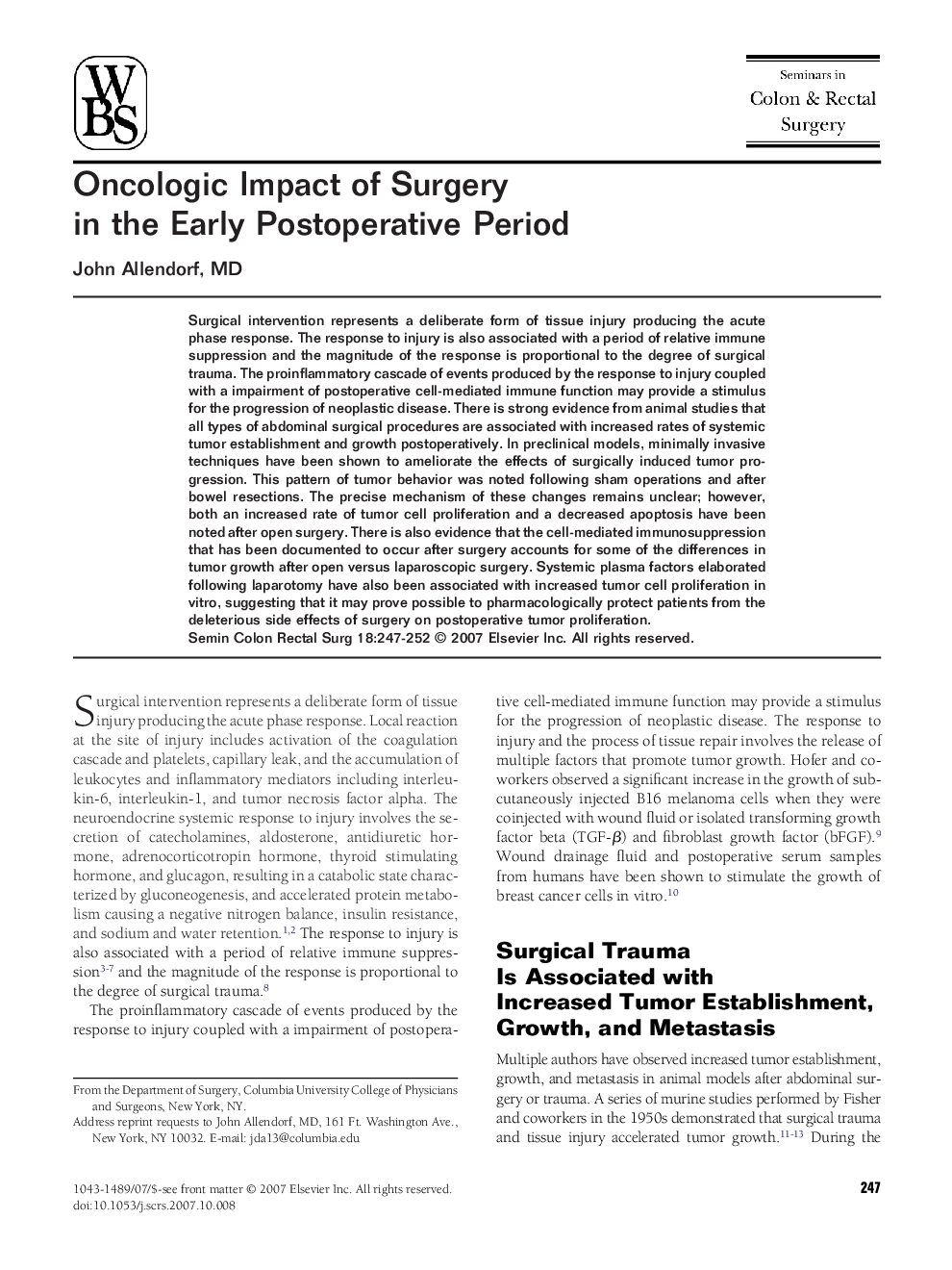| Article ID | Journal | Published Year | Pages | File Type |
|---|---|---|---|---|
| 3319668 | Seminars in Colon and Rectal Surgery | 2007 | 6 Pages |
Abstract
Surgical intervention represents a deliberate form of tissue injury producing the acute phase response. The response to injury is also associated with a period of relative immune suppression and the magnitude of the response is proportional to the degree of surgical trauma. The proinflammatory cascade of events produced by the response to injury coupled with a impairment of postoperative cell-mediated immune function may provide a stimulus for the progression of neoplastic disease. There is strong evidence from animal studies that all types of abdominal surgical procedures are associated with increased rates of systemic tumor establishment and growth postoperatively. In preclinical models, minimally invasive techniques have been shown to ameliorate the effects of surgically induced tumor progression. This pattern of tumor behavior was noted following sham operations and after bowel resections. The precise mechanism of these changes remains unclear; however, both an increased rate of tumor cell proliferation and a decreased apoptosis have been noted after open surgery. There is also evidence that the cell-mediated immunosuppression that has been documented to occur after surgery accounts for some of the differences in tumor growth after open versus laparoscopic surgery. Systemic plasma factors elaborated following laparotomy have also been associated with increased tumor cell proliferation in vitro, suggesting that it may prove possible to pharmacologically protect patients from the deleterious side effects of surgery on postoperative tumor proliferation.
Related Topics
Health Sciences
Medicine and Dentistry
Gastroenterology
Authors
John MD,
